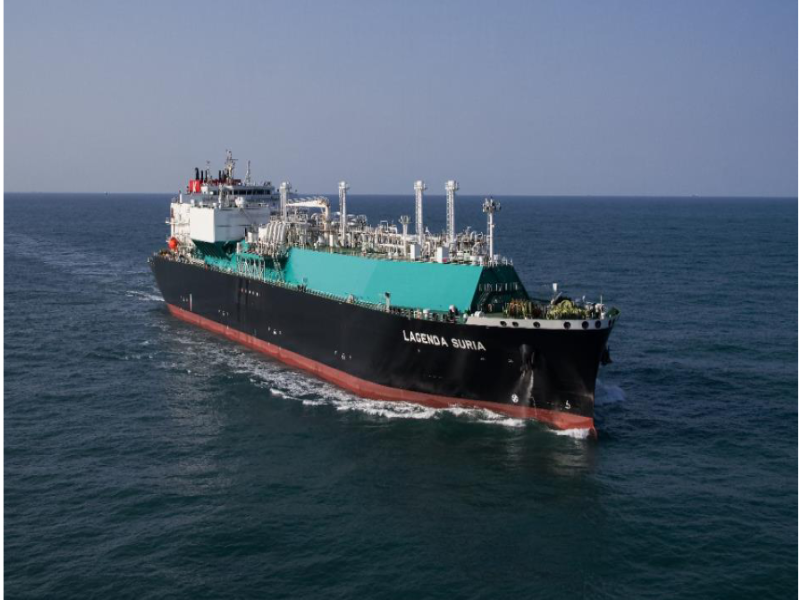
Japan’s Kawasaki Kisen Kaisha (K Line) has taken the delivery of a new W-Max class liquefied natural gas (LNG) carrier from Hudong-Zhonghua Shipbuilding (Group) for Petronas LNG, a subsidiary of Malaysian state-owned oil and gas firm Petronas.
Named Lagenda Suria, the new vessel is the first of the two vessels to serve Petronas under a long-term time charter.
The second vessel, Lagenda Serenity, will be delivered next month.
Both the vessels will be used for shipping LNG from Bintulu in Malaysia to Shenergy (Group) in China.
Featuring a dual-fuel engine, Lagenda Suria has a length overall (LOA) of 239.4m and a beam of 36.6m.
With a tank capacity of 79,958m³, the vessel cruises at a speed of 17.5k.
How well do you really know your competitors?
Access the most comprehensive Company Profiles on the market, powered by GlobalData. Save hours of research. Gain competitive edge.

Thank you!
Your download email will arrive shortly
Not ready to buy yet? Download a free sample
We are confident about the unique quality of our Company Profiles. However, we want you to make the most beneficial decision for your business, so we offer a free sample that you can download by submitting the below form
By GlobalDataK Line stated that Lagenda ‘signifies the new iconic industry standard for the pace of procurement and chartering with the first W-Max design’.
The company, in its medium-term management plan, deemed its LNG carriers business as one of its key focus areas to support growth.
K LINE and Daito Corporation recently started the operation of the Yokohama Daikoku C-4 terminal in Japan.
The terminal utilises electric power from renewable energy sources with virtually zero CO₂ emissions.
Earlier this month, the company also revealed two conceptual designs for LNG-driven and battery-powered bulk carriers to cut down emissions.
Japanese ship classification society Nippon Kaiji Kyokai (ClassNK) awarded approval in principle (AiP) for both designs.







